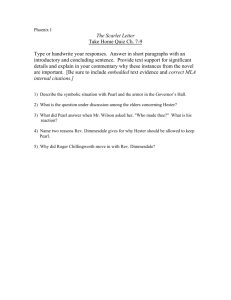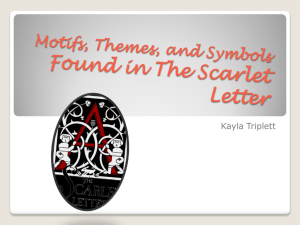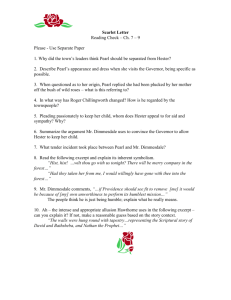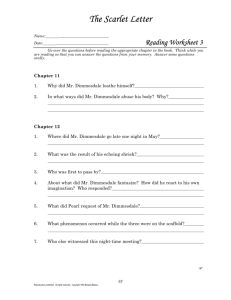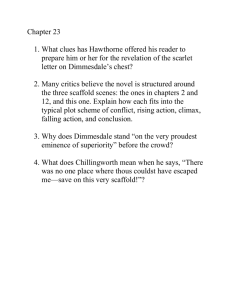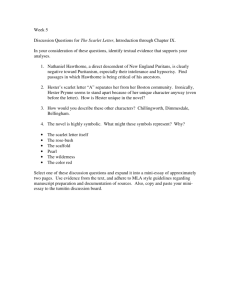Unit 1 Review
advertisement
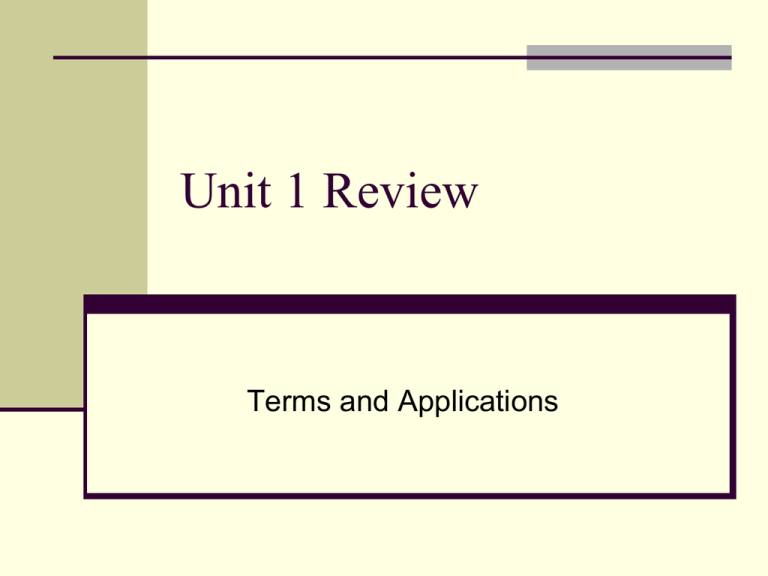
Unit 1 Review Terms and Applications Terminology of Philosophy Philosophy—the study of truth in all its various forms Epistemology—the study of how and what we can truly know Metaphysics—the study of the fundamental nature of reality and being Ethics—the study of right and wrong; Absolute ethics are always true, but relative ethics depend on the situation Aesthetics—the study of the nature of art Critical Thinking Skills Reflection—taking time rather than making a snap decision; requires effort—integrity rather than expedience (not always the proper way to go) Reason, logic—rather than emotion; trying to figure out the truly right answer rather than simply what we want; being dispassionate and objective, scientific method Source evaluation—being able to find and evaluate sources of information Metacognition—thinking about thinking; recognizing one’s own thinking patterns and problems Terminology of Moral Systems Puritanism—absolute sovereignty of god, total depravity of humans, unconditional election, God’s intentions are present in the world, Satan’s presence in the world—re: The Crucible Romanticism--18th-19th C. literary movement in Europe and America that emphasized the inspiration of nature, individualism, religious freedom, innate goodness of humanity (as opposed to original sin), reaction against reason as the epistemological way of knowing the world (Age of Reason), and fascination with the melancholy and morbid Terminology of Moral Systems Shermer’s Secular Morality The Ask First Principle—ask the affected person(s) if behavior is moral; the Golden Rule with more emphasis on avoiding harm The Happiness Principle—always seek happiness with someone else’s happiness in mind; never seek happiness when it leads to someone else’s unhappiness Terminology of Moral Systems Shermer’s Secular Morality The Liberty Principle—it is a higher moral principle to always seek liberty with someone else’s liberty in mind, and never seek liberty when it leads to someone else’s loss of liberty The Moderation Principle—when innocent people die, extremism in the defense of anything is no virtue, and moderation in the protection of everything is no vice Terminology of Moral Systems Four Standards of “Right Action” Obedience to Authority—”do it because I say so” Effect on Others—consider how an action helps or harms other people Model of an Ideal Figure—”WWJD,” “WWMCD,” basing ethical choices on someone you admire Intention—considering what the motive was rather than merely the result of an action Literary Terms Levels of Interpretation Action Question—what happens in a story, who does it, how, when, where does it happen? Character’s Motivation Question—why do the characters make the choices that they do? This can be overtly stated or implied; Author’s Motivation Question—why does the author make the decisions he or she does? Evaluation—does the literature succeed at what it tries to accomplish? The Crucible What events originally start off the witchcraft hysteria? What rifts existed in Salem that increased the town’s susceptibility to the cries of witchcraft? How do Abby’s motives change from the first accusation to later in the play? What is the state of the Proctors’ marriage at the beginning and end of the play? What caused the change? What are Putnam’s motivations? The Crucible What are John Proctor’s conflicts at the beginning and end of the play? Explain Giles Corey’s character and actions. How is Rebecca Nurse different from the other people of Salem? What is Parris’s primary motivation throughout the play? How is Reverend Hale different from the other believers in witchcraft? How does this affect his actions? The Crucible Explain the Puritan metaphysical beliefs that led to the court’s acceptance of the girls’ testimony. What belief lies at the bottom of Danforth’s refusal to let Proctor get a lawyer? Why does Elizabeth lie for John? Why are Parris and Danforth so eager for Proctor to confess at the end of the play? How is Hale’s motivation different from theirs? The Crucible Why does Proctor at first decide to confess? Why does he change his mind? Why does Elizabeth refuse to try to change his mind? Why do you think Arthur Miller saw Proctor’s final decision as the right action to take? What parallels exist between this play and the Red Scare of the 1950’s? What can we learn about our society today from this play? The Scarlet Letter How does Hester respond at first to her punishment—wearing the “A” and her public humiliation? What does Dimmesdale’s attempt to get her to name her baby’s father reveal? What does Dimmesdale imply about Hester’s silence? What does Chillingworth’s reaction to Hester’s punishment tell us about him? What secret does Chillingworth want Hester to keep? The Scarlet Letter What kind of a child is Pearl? What are the two reasons the Puritans consider taking Pearl away from Hester? Why does Hester get to keep her? Why is Dimmesdale sick? What is Chillingworth’s theory about Dimmesdale’s illness? What does Chillingworth want from Dimmesdale? What is on Dimmesdale’s chest? The Scarlet Letter What does Pearl repeatedly ask Dimmesdale to do? What is his response? How does Pearl react to this response? How does the attitude of the town change toward Hester throughout the course of the novel? What is the role of the forest in this novel? What do Hester and Dimmesdale decide to do? How does Chillingworth thwart this plan? The Scarlet Letter Why does Dimmesdale confess? What is Chillingworth’s reaction to this? What is Pearl’s? What happens to Pearl, Hester, and Chillingworth at the end of the novel? How does the Puritan public perceive Dimmesdale’s confession?
